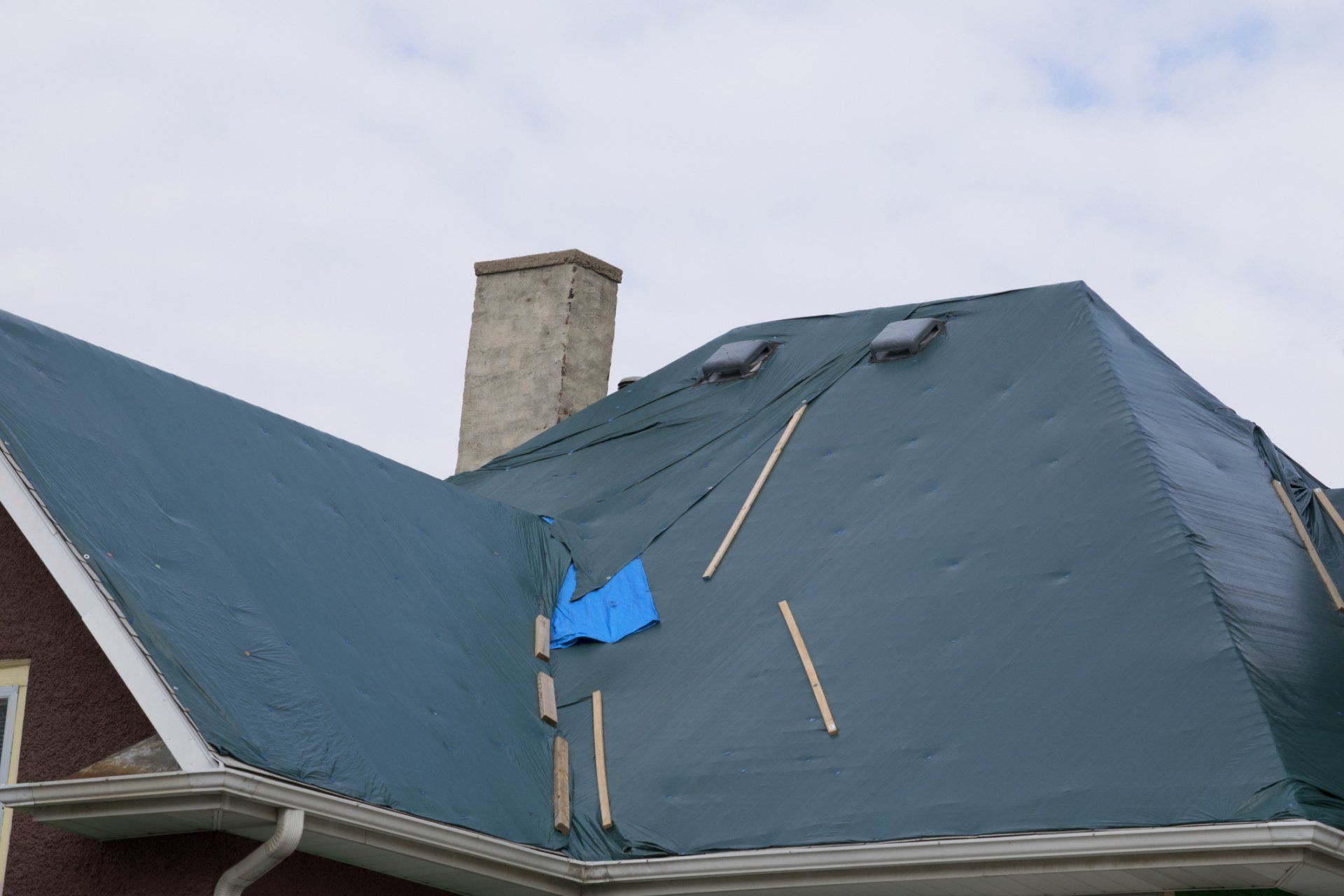Free Estimates | Call Us Today
Most Common Commercial Roof Types
Roofing is an important part of any building, especially one that houses a business. However, when it comes to commercial roofing, there are many different types and styles. As a result, it's important to understand the options to make an informed decision about your roof. In this post, we'll list the different types of commercial roofing, and what they offer so you can make a more educated choice for your company!
Most Common Commercial Roofing Types
Commercial buildings have mostly a flat or less slope roof because Flat roofs are simple, economical, easily built with common materials, have low-maintenance requirements, and are better for storage space. In some cases, a flat roof may be your only option.
You can classify all of the different types of commercial roofing into three categories:
- Built-Up Roofing System
- Single-Ply Membrane Roof
- Metal Roofing
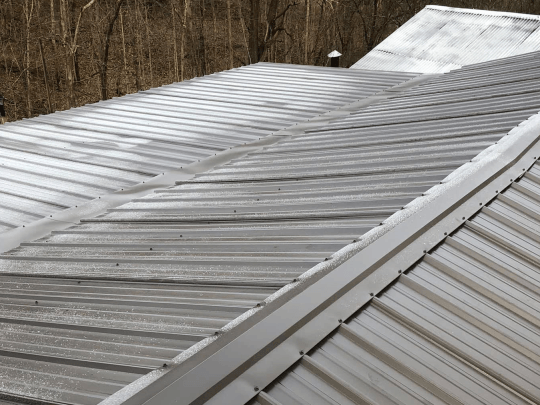
Commercial Metal Roofing
Metal roofing is a type of commercial roofing that comes in many different styles and materials. It's typically composed of corrugated galvanized steel, aluminum, zinc, or tin sheets attached to the rooftop with standing seam or corrugated metal panels.
Standing seam panels are attached to the roof deck with either mechanical fasteners or adhesives. Though they require more time and labor than other types of commercial roofs, these panels prevent leaks much better because their seams do not run parallel to each other like corrugated sheets that create channels for water to seep through during heavy rains.
On the other hand, a corrugated
metal roof is more affordable and less labor-intensive to install, but it's also not as durable or weatherproof. The metal expands and contracts with the sun's heat; it warps and can create leaks around the screws.
Standing seam
metal roof provides a more finished look and is one of the most durable options on the market today, but it's also one of the most expensive. However, it can last for more than 50 years, and it's impervious to water, wind, mold, or rot.
This type of roofing is most appropriate for industrial or commercial properties that are prone to heavy weather conditions, especially when it comes to extreme wind, hail, or rain. Also, if the topmost sheet has a white paint finish, it adds more protection from UV rays and helps protect your building from exterior damage.
Build-Up Commercial Roofing - BUR
It is one of the old-school commercial roofing solutions that are still popular today. In this system, there is a base layer of tar and gravel. This sits on top of an insulation material such as foam board. The final coat consists of asphalt, which provides waterproofing from rain and snow melting off the roof.
This type of roof is flexible and relatively inexpensive, but it does require regular maintenance. This includes inspections to check on the condition of each layer and repairs as needed.
Multiple layers of this roofing system make it puncture-resistant and long-lasting. It also does a great job of protecting the building from leaks. This is especially important for business owners looking to protect their inventory or equipment that may be damaged by water seeping through the roof.
Sometimes, the topmost layer is covered with gravel to protect it from UV rays. This can help extend the life of the roof as well as give it a more finished look.
Modified Bitumen Roofing
Modified bitumen is a type of commercial roofing that is similar to the traditional build-up system. It consists of five layers, just like a build-up system. However, it varies because the base layer is made from a copolymer, increasing its durability and resistance to punctures or tears.
The second layer in this roofing system is a waterproof membrane which prevents water from seeping through the outer two sheets into the insulation below. This is what makes the roofing material waterproof.
The third layer in this system consists of a high-quality adhesive that provides additional protection from leakage by holding all five layers together. Finally, the fourth layer is another protective membrane made out of fiberglass or polyester fibers to reinforce further its strength and resistance to tears, punctures, leaks, etc.
The final layer in the roofing system is a thin, waterproof membrane that provides UV protection and weather resistance. This last layer prevents water seepage into the topmost sheet of material to protect it from damage or deterioration over time.
Modified bitumen roofing is a great choice for commercial buildings because it's strong, flexible, and puncture-resistant. It can also withstand extreme weather conditions like heavy wind or hail, making it the perfect option if your business regularly deals with these types of incidents.
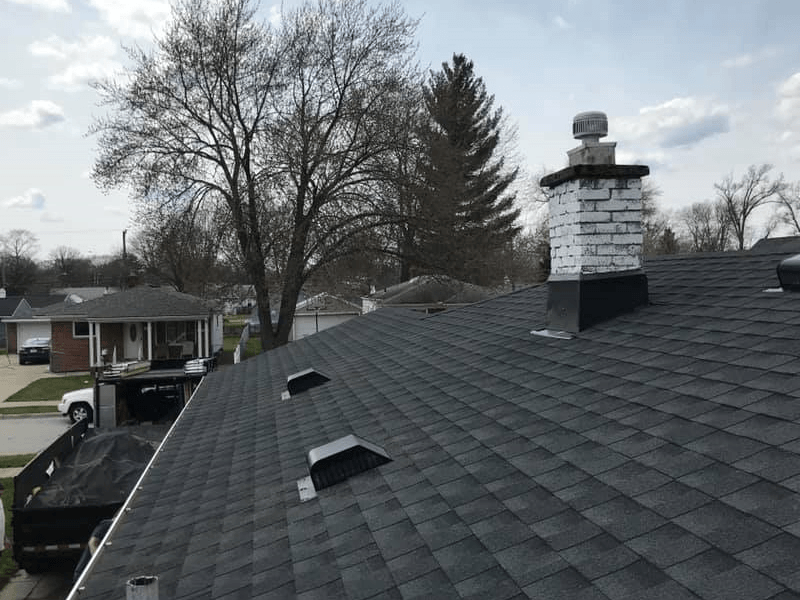
Single-Ply Thermoset EPDM Roofing
This system is a single-ply membrane and one of the more modern commercial roofing options on the market today.
An
EPDM synthetic rubber roof consists of only one sheet, which makes it simple to install and repair or replace if necessary. In addition, it is a lightweight, flexible material that can be easily cut and shaped to fit your roofing needs.
This commercial roofing solution has been around since the 1970s, so it's relatively new compared with other types on this list. However, EPDM membrane technology has rapidly evolved, making these roofs more durable than past ones.
This type of roofing system is also extremely durable, long-lasting, and quick to install, making it great for commercial buildings that deal with changing weather conditions like heavy wind or rain.
Single-Ply TPO and PVC Thermoplastic Roofing Systems
TPO (thermoplastic polyolefin) and PVC (polyvinyl chloride) are two types of single-ply membrane roofs with welded seams.
Welded Seams make them less susceptible to leaks, but they can puncture more easily. However, if punctured, they are easier to detect and patch leaks if necessary.
They can either be attached mechanically or with adhesives to the roof deck or a combination of both. The mechanically attached roof membrane does not require a cover board for the glue application, making it faster to install than other systems that need additional labor costs.
TPO and
PVC roofs are great options if you're looking for an energy-efficient commercial building solution because they are both UV resistant, and the white color coating reflects the sunlight keeping your energy bills down.
Spray-On Foam Roof Coating
Spray-on foam roofing is a popular commercial roofing option because it is an inexpensive and quick solution. With spray foam, you get a seamless seal that helps prevent leaks. The light color also reflects sunlight, which helps keep your energy bills down by saving the cost of air conditioning.
Spray-on foam is not as durable as other commercial roofing systems, but if you inspect it at least once a year, you can catch problems early on and repair them quickly before they become a more expensive issue.
Many commercial roofing options on our list can benefit from a spray-on layer of foam on top of the roofing system. This will help protect your roof from damaging UV rays and moisture, which can extend the life of your roof significantly.
This type of coating is best when you are looking to protect your roof from absorbing heat or water. However, it may not be the best option if you are looking for a durable roof that will last for decades.
Green Roofs
A green roof is a great choice for businesses or homes that are environmentally conscious or anyone who is looking to save on their energy bills.
These roofs are composed of several layers of material, including insulation material, waterproof membranes, plants, and build-up layers of soil or gravel. It's also possible to have plants grow directly on top of these roofs.
Green roof structures provide air filtration, natural cooling properties, sun protection, shade for occupants in the summertime, and much more. In addition, these provide government tax credits, environmental benefits, and a more sustainable choice for your roofing solution.
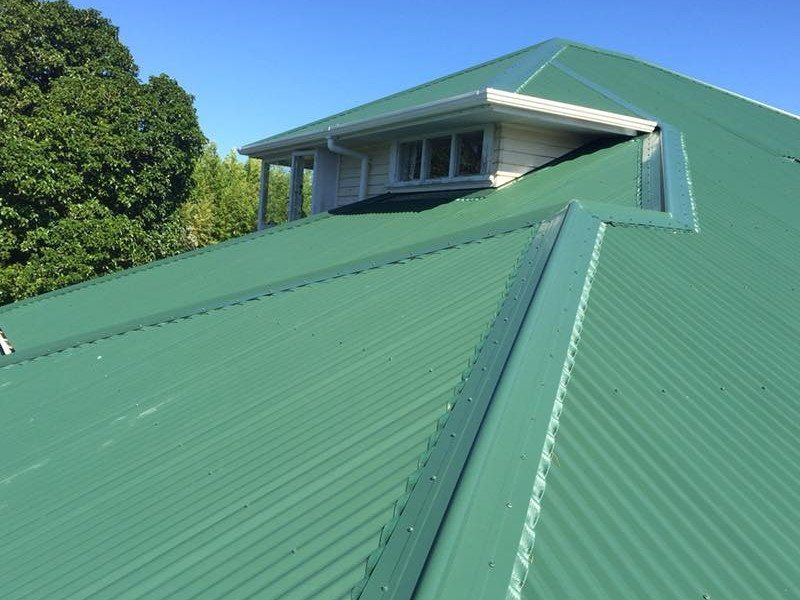
What is the best type of commercial roofing for your business?
So now that you're informed about all of your commercial roofing options, which one should you choose? If you follow our simple guidelines, choosing the best commercial roofing solution for your building needs is quite easy.
First, figure out how much money is budgeted for the new roof. Once you have that number, find out what are your roofing budget restrictions. Is the roof going to be exposed to chemicals, grease, or acid? Will it be exposed to high winds? Is it facing the sun? If so, you should use a material that is resistant to those elements.
Look at your building's location, too, because temperature extremes could also affect the kind of commercial roofing option that'll best fit your needs.
After that, you need to consider the age of your roofing material. The best commercial roofing can be expensive upfront, but it will save you money in the long run and keep your business running efficiently and prevent leaks.
Finally,
contact us today if you're still unsure which type of roofing is best for your building. We'd be happy to help you make an informed decision!
Read More About Roofing!
Southern Roofing Systems is one of the fastest growing coalitions of roofing services acros the United States Southeast. We provide everything from residential services to commercial services.
OUR SERVICES
Southern Roofing Systems is a Marketing Brand with Roofers Across the Southeastern United States | All Rights Reserved
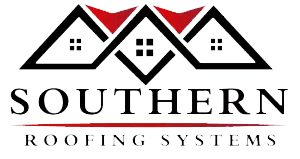
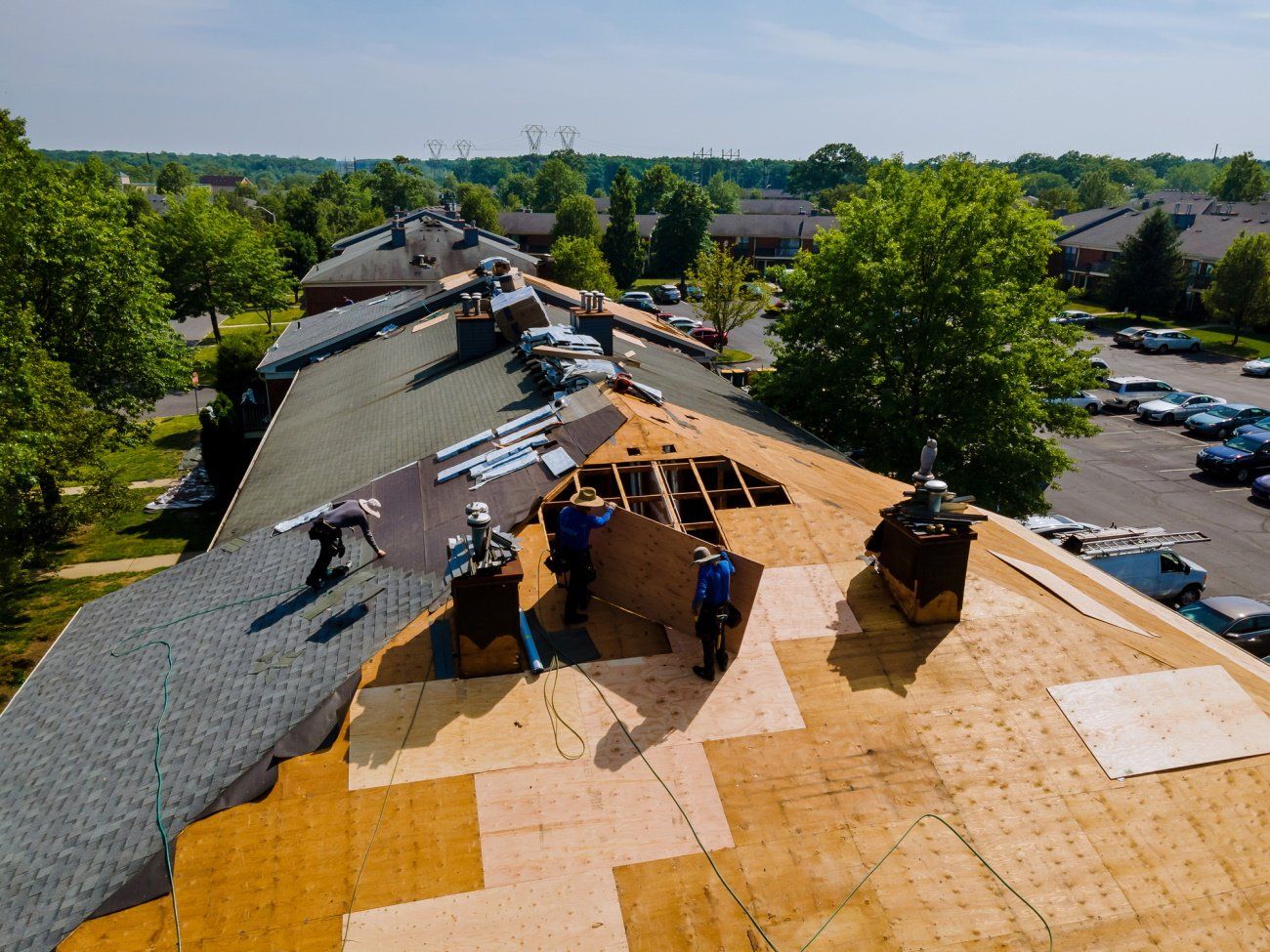
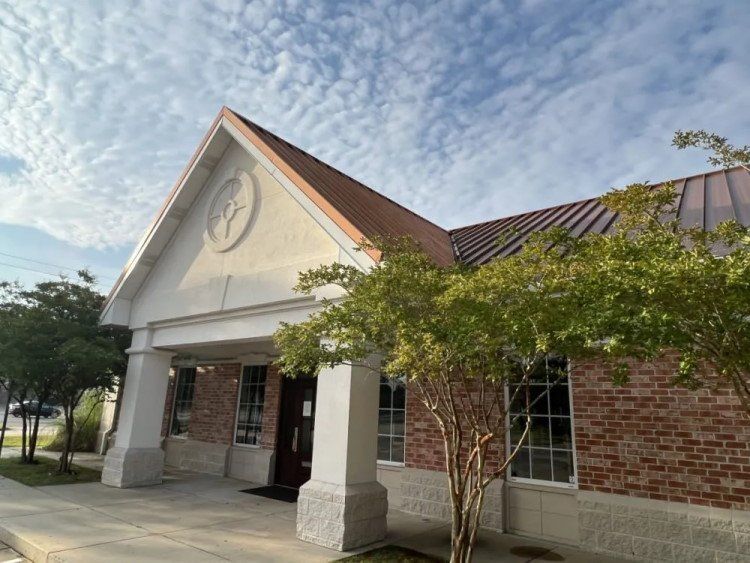
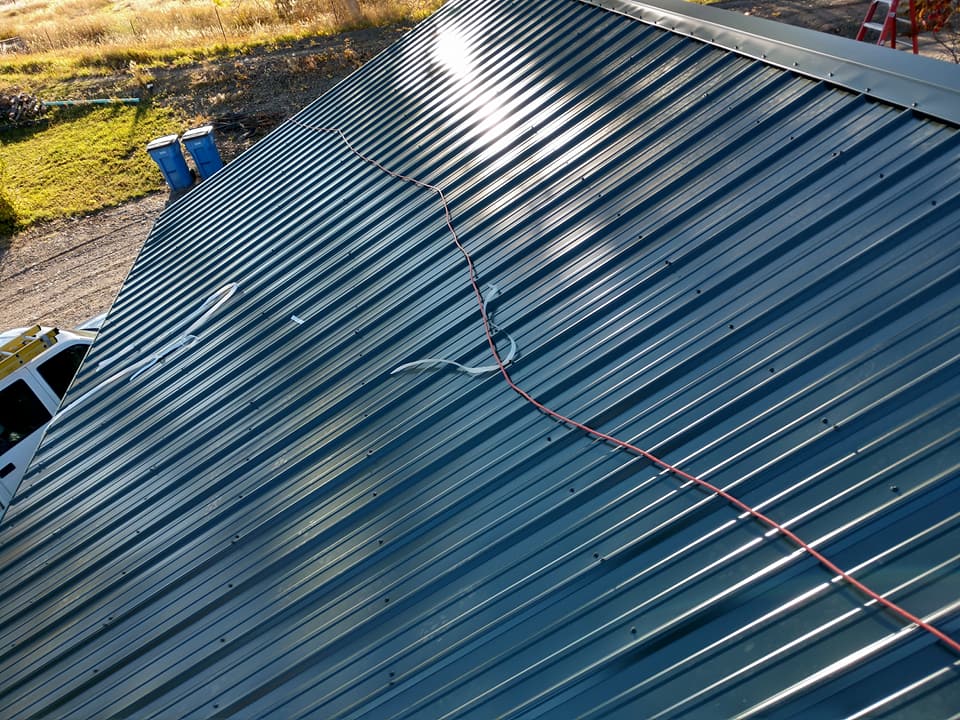
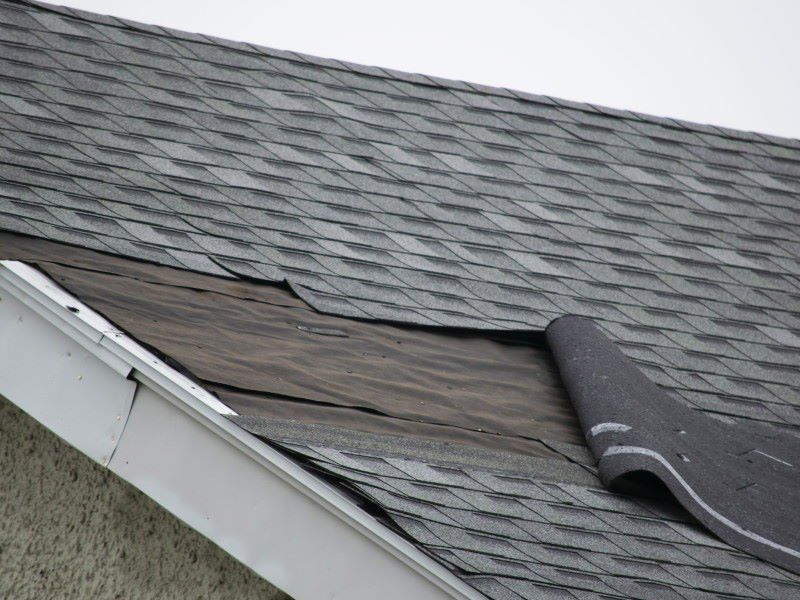
![What Is Torch Down Roofing? [Benefits and Downsides]](https://lirp.cdn-website.com/d89ea654/dms3rep/multi/opt/iStock-1092069734-6690c8ea-1920w.jpg)
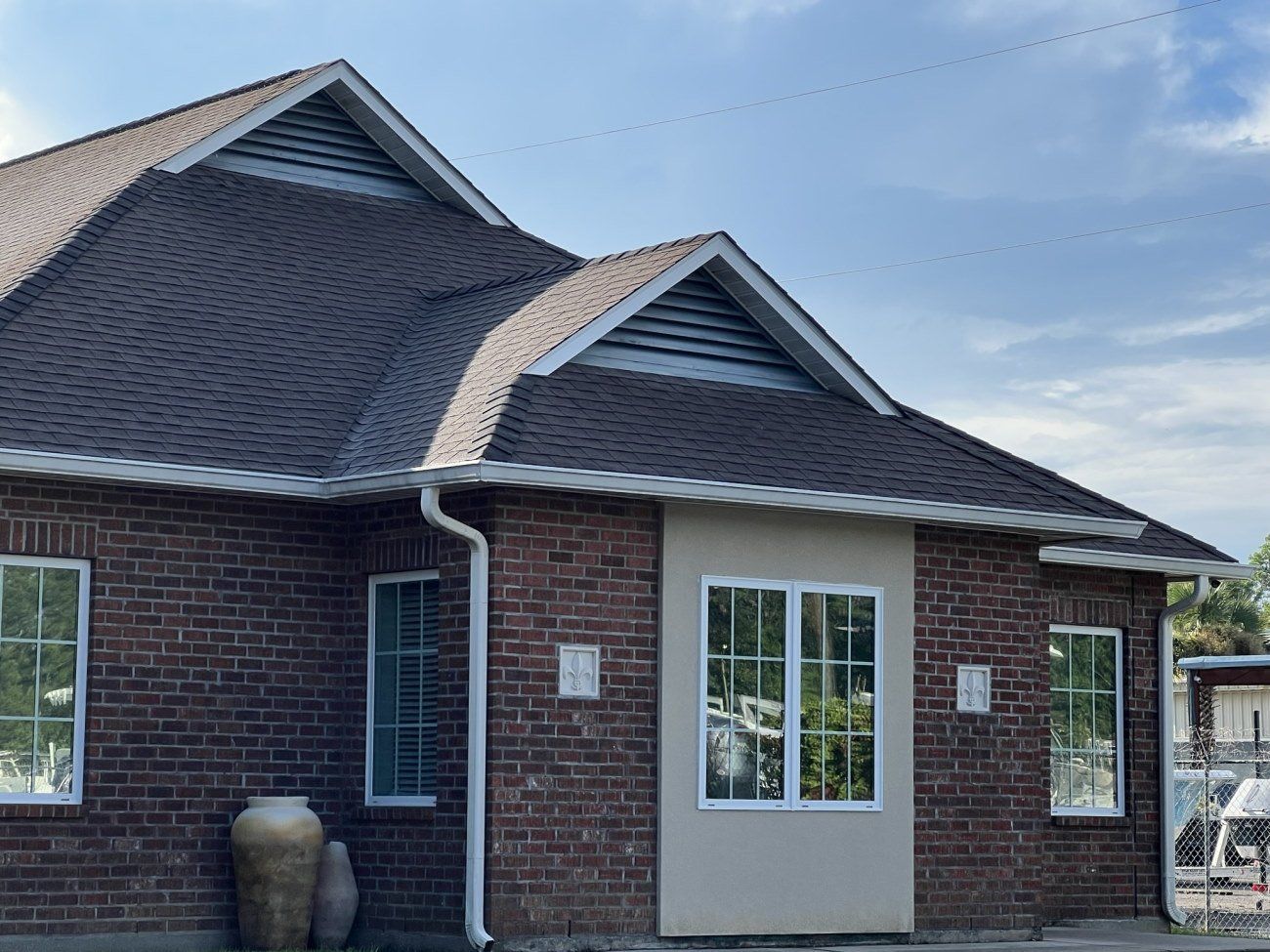
![How to Remove Moss from Your Roof [The Ultimate Guide]](https://lirp.cdn-website.com/d89ea654/dms3rep/multi/opt/older+roof+in+need+of+roof+repair+in+Orange+Beach-1920w.JPEG)
